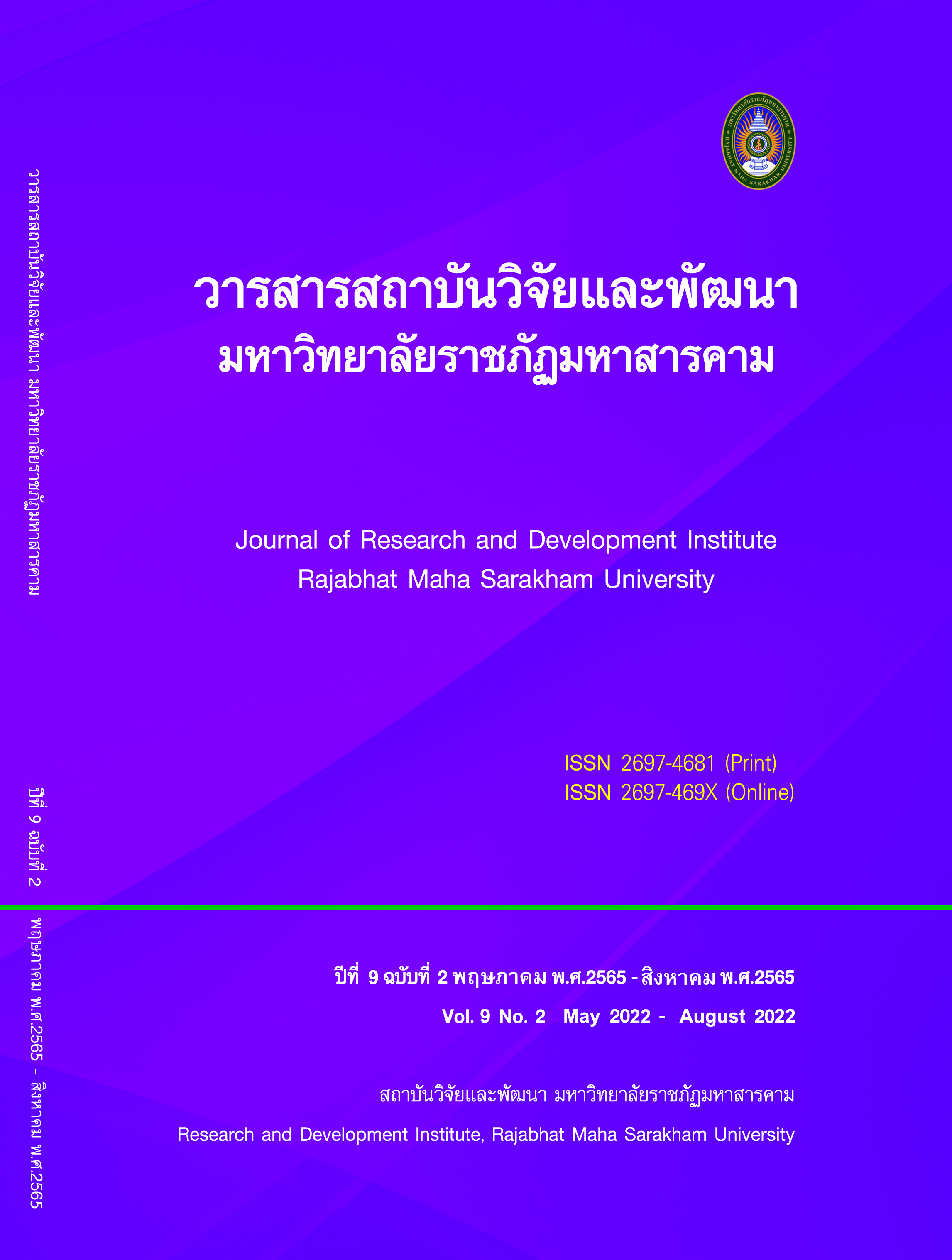THE RELATIONSHIP BETWEEN TYPES OF DIGITAL MEDIA AND FINANCIAL LITERACY OF FINANCIAL CONSUMERS
Keywords:
Financial Literacy, Digital Media, CommunicationsAbstract
The purposes of this research were 1) to study the level of financial literacy of financial consumers 2) to study the relationship between types of digital media and financial literacy of financial consumers. The samples of the research were 400 financial consumers in Bangkok and vicinities. Those group sample were selected by using purposive sampling technique. The research tools were questionnaire about the digital media patterns in financial institutions and financial literacy (test score). The data was analyzed by using frequency distribute, mean, percentage, standard deviation and Pearson’s correlation. In form the study, most of financial consumers had 5 years of Internet experience and usage smartphone was the most popular. For financial literacy, it was found that 1) the level financial literacy of financial consumers was the low level 2) the relationship between digital media patterns and financial literacy of financial consumers were found to be correlated at a high positive level (r = 0.610) with statistical significance at 0.01 which means that financial consumers who receive a high level of information or news about financial literacy depends on the digital media. In which motion picture media that advertising via YouTube channels. For the future research should study cover the components of financial skills which consists of financial knowledge, financial attitude, financial behavior and future research should also focus on other regions in Thailand.
References
Angkawanich, E. (2020). Gamified Financial Communication System for Enhance Investment Intention of Retail Investors. Journal of Communication Arts Review, 24(2), 91-104.
Bank of Thailand. (2018). Thai Financial Skill Survey. Retrieved June 18, 2021, from https://www.1213.or.th/th/aboutfcc/knownfcc/Documents/2561ThaiFLsurvey.pdf
Bank of Thailand. (2016). Thai Financial Skill Survey. Retrieved June 18, 2021, from http:// doh.hpc.go.th/data/HL/ThaiFinancialSkillSurvey2559.pdf
Charoenchotithum, A. et al. (2016). Strategic communication: using new media to disseminate research work to the new generation. Bangkok: Rangsit University.
Damjub, W. (2017). Digital Communication. Interdisciplinary Sripatum Chonburi Journal, 3(1), 46-50.
Jumlongrat, T. (2018). The Factors of Digital Marketing Communication that Affect Stock E-Learning. Retrieved June 20, 2021, from http://dspace.bu.ac.th/jspui/bitstream
/1234 56789/4104/1/Tanatcha_juml.pdf
Kerdvibulvech, C. (2017). New digital media media for the future. Bangkok: National Institute of Development Administration.
Kenan Institute Asia. (2015). Literacy Improvement for better Finance in Thailand. Retrieved June 20, 2021, from https://thaipublica.org/wpcontent/uploads/2015
/03/1.Citi-LIFT-FL-Research-Report-THAI_Draft.pdf [in Thai]
Lusardi, A., & Mitchell, O.S. (2011). Financial literacy: Implications for retirement security and the financial marketplace Eds., Oxford: Oxford University Press.
Organization for Economic Cooperation and Development. (2012). Measuring Financial Literacy: Questionnaire and Guidance Notes for Conducting and Internationally Comparable Survey of Financial Literacy. Retrieved June 20, 2021, from https://www.oecd.org/finance/financial-education/49319977.pdf
Phosai, K. (2015). Financial Literacy of Thai people. Savings and Investment Journal, 2(34), 1-2.
Pornsakulvanich, V. (2018). New Media and Communication Management. Bangkok: Thammasat University.
Downloads
Published
How to Cite
Issue
Section
License
Copyright (c) 2022 Journal of Research and Development Institute Rajabhat Maha Sarakham University

This work is licensed under a Creative Commons Attribution-NonCommercial-NoDerivatives 4.0 International License.
Articles that are published are copyrighted by the authors of the articles







